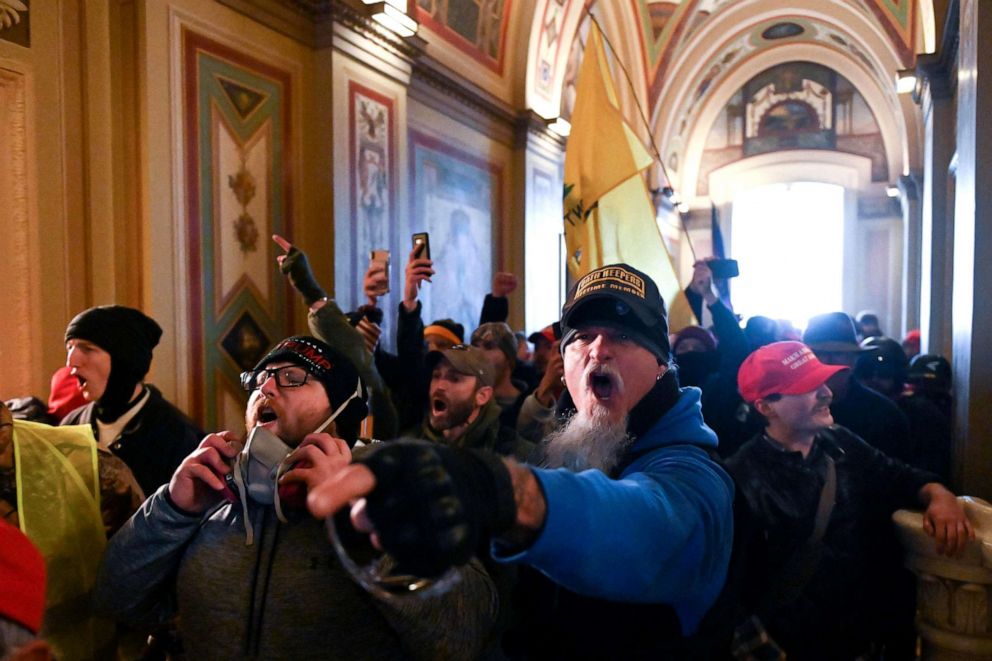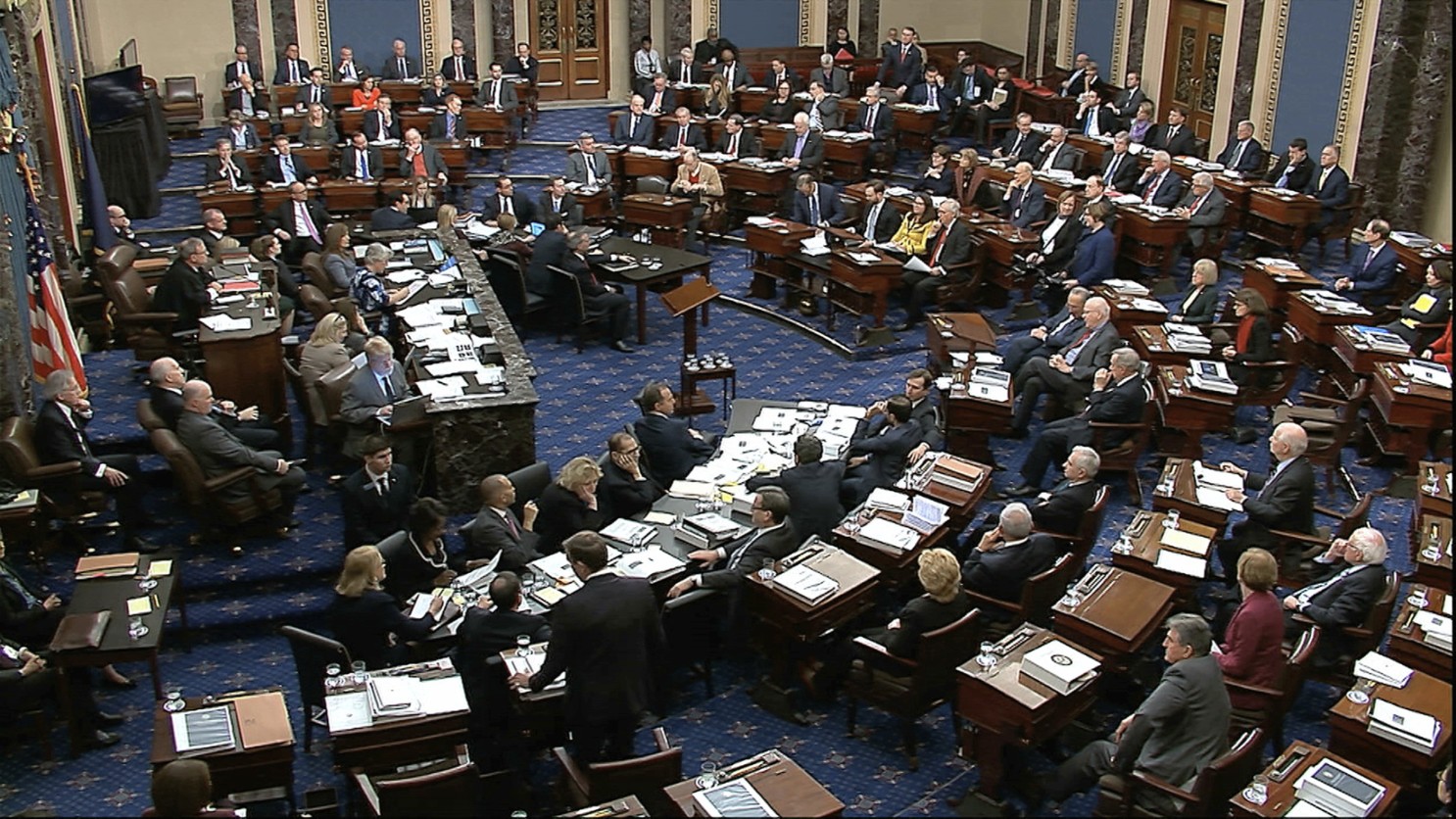
By Antonio Munoz, contributing writer
Photos from ABC News and LA Times
When the founding fathers penned the impeachment process in our Constitution, it was designed to hold the people in office accountable for their actions. Article 2 Section 4 of our constitution states that, “The President, Vice President, and all civil Officers of the United States shall be removed from Office on Impeachment for, and Conviction of, Treason, Bribery, or other high Crimes and Misdemeanors.”
There has always been an on-going debate about what the framers meant when they said “High crimes and Misdemeanors” and how you apply it in an impeachment case, but you would think inciting the insurrection at our Capitol building on January 6th, 2021 would fit the idea of high crimes. House Democrats believed this to be true, so U.S. Representatives David Cicilline, Jamie Raskin, and Ted Lieu introduced articles of impeachment for inciting an insurrection before the house floor. Following the vote, it passed as the most bipartisan impeachment in our history with 10 Republicans joining forces with every Democrat and Independent. It is also the first time in our nation’s history that a president has been impeached twice.
After the vote in the House of Representatives passed on Jan. 13, one week before Trump’s first term was to end, it was sent over to the Senate Majority Leader Mitch McConnell who refused to hold an emergency session for the impeachment at the Senate Minority Leader Chuck Schumer’s request. Senator Mitch McConnell would then only agree to hold a trial when Trump was out of office. Following Trump’s departure from office, the Senate held the impeachment trial.
Over the course of two weeks, the house managers prosecuting the case along with Trump’s defense team argued their cases with the biggest moment being when the house managers presented a thirteen-minute video detailing the severity of what happened Jan. 6 at our Capitol building. It shows how much danger our elected officials were in and how Trump’s speech was taken as an order by his followers to march, and to eventually storm the Capitol building. The aftermath of the riot left capitol police officer Brian Sicknick dead along with four rioters. We have never seen anything like this in our nation’s history and it is one of the saddest days in terms of democracy in the United States.
However, the saddest thing was that after the deliberations of the impeachment trial, the Senate acquitted Trump of the charge to incite an insurrection. This leads me to another idea—if this was not an impeachable act, then what constitutes an impeachable act? Comparing past impeachments, Donald Trump’s impeachment is the most severe and damning case in the history of impeachment cases. Everything that happened on that unforgettable day, Jan. 6, will forever change how we operate in our capitol, how we operate our elections, and how we operate our electoral process. It has shown the true power of one’s words and actions, because Trump continually hammering the baseless claims of election fraud for months on end had finally reached its boiling point, which resulted in Congress men and women being in harm’s way.
Our impeachment process has become political theatre instead of what it was intended to be as designed by our founding fathers of the Constitution. A perfect example of this is Senate Minority Leader Mitch McConnell, when the articles of impeachment were passed, he had (as mentioned earlier) an opportunity to call an emergency session to hold the impeachment trial before Trump left office. He decided to push it off until after President Biden was sworn in.
Once the trial was over and Trump was acquitted, Senator McConnell was quoted saying, “There is no question, none, that President Trump is practically and morally responsible for provoking the events of the day… they’d been fed wild falsehoods by the most powerful man on earth because he was angry he lost an election… (Trump) is constitutionally not eligible for conviction (due to Trump not being in office).”
The Senator who had the ability to call the emergency session to hold the impeachment trial while Trump was still president and failed to act upon it is now voting not guilty because he is not a sitting president anymore? This has got to be the most clear-cut example of political theatre. It is one of the many reasons that our impeachment process has become a political game to these politicians, instead of it being the check on power that it was designed to be, as outlined in our Constitution.
Now, the only thing that matters in impeachment trials is if you have enough people who belong to the same party as you, instead of them calling balls and strikes as they should be. Everything is hyper-partisan which is why impeachment is in the state it is today. The Senate has now set a precedent that elected officials can do whatever they want in the last few months of their term which is a very sad time for democracy in America.


it’s also incredibly sad that the senate has the power to allow Supreme Court nominations when in the exact situation last term, the democrats were blocked from a nomination themselves. Democracy has become a petty competition with a sole purpose to piss off the other party, not do what’s best for the country.
loved reading this !